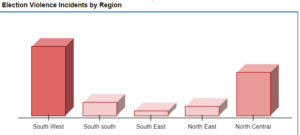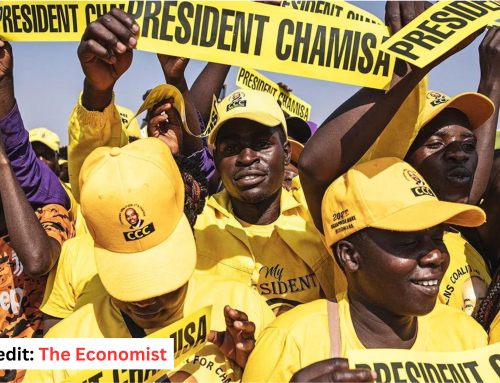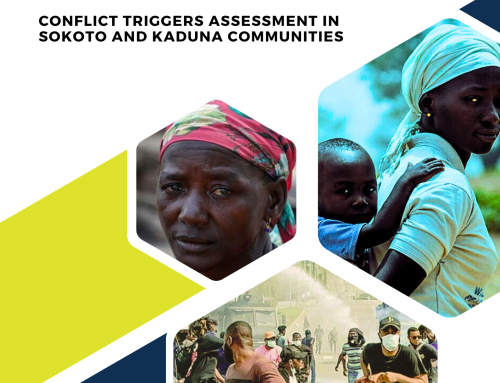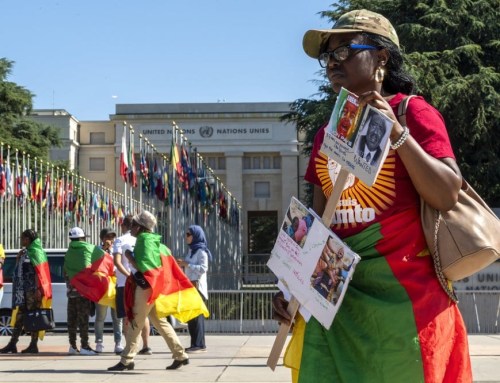The Incident Centre for Election Atrocities (ICEA) commends Nigerians for their show of patriotism and courage demonstrated through their turnout and orderly conduct at the polls on February 25, 2023. Despite attempts at voter suppression through violence and ballot snatching by unscrupulous elements, Nigerians defied the odds and came out in significant numbers to exercise their franchise even in areas that were widely acknowledged as flash points.
Below is a summary of our preliminary findings across the country.
Logistics and Opening of Polls
The Independent Electoral Commission (INEC) was clearly logistically ill-prepared for the elections. While most voters had arrived at their polling units as early as 6:00am, a significant number of INEC officers and ad-hoc staff of the Commission did not arrive at their assigned polling units till about 10:30am and some, even later. Consequently, voting did not commence at most of such polling units till 11:30 AM, as against the stipulated commencement at 8.30am. In some instances, they claimed to have arrived with the wrong materials or insufficient ballot sheets, thereby impacting the ability of registered voters to commence voting.
The late arrival of election officers and materials at the majority of the polling units resulted in polls closing very late at these units. For instance, some of the polling units in Abuja particularly along the Airport Road axis voted well into midnight while at a few other polling units, voting took place all through the night into the early hours of February 26, 2023.
Voting Process and Functionality of the Bimodal Voter Accreditation System (BVAS)
We noted a high level of rowdiness that could have been prevented at a number of the polling units with large numbers of voters, and where accreditation and voting had commenced late. We also noted that the election officers and assigned security personnel did not possess the requisite orientation to manage the crowds effectively. In these stressful circumstances, several disabled persons, elderly, and sick people were disenfranchised.
We noted that the accreditation process was smooth at most polling units and over 90% of voters were successfully accredited without significant challenges. We are however very concerned, about the failure to upload the election results using the BVAS after the voting exercise in major locations including the FCT and Lagos. This failure casts a strong shadow on the transparency of the elections and gave wiggle room for manipulation. Worse still evidence has emerged of the manipulation of some result sheets by unscrupulous INEC officials, and in some instances, aided by security officials.
Violence, Voter Suppression and Attacks on Election Observers
The 2023 general elections, just like previous elections were marred by violence, before and on election day. We documented at least 10 deaths in Edo, Taraba, Rivers, Gombe, Abia and Kogi states on election day. At least 7 persons including 3 ad-hoc staff of INEC were abducted on election day in Taraba and Kaduna states.
There were also incidents that documented several premeditated attacks on several polling units and voters, and also the destruction of voting materials including ballot boxes and papers, especially in parts of Lagos and Edo states.
There were several documented incidents of open threats of violence directed at voters at polling units. Particularly directed at those who fail to vote for a particular political party and directing them to exit the polling units. In some areas, voters who were suspected to support particular political parties or from certain ethnic groups were denied access to the polling unit.
A major road leading to the community of the PDP senatorial candidate for Kogi Central, Natasha Akpoti, was destroyed just a few hours before the commencement of the presidential and parliamentary elections, cutting it off from the rest of the state and making it inaccessible even to election officers. Curiously, the Kogi State Governor, Yahaya Bello admitted to destroying the major road but claimed it was to prevent terrorists from gaining access. Youths from the areas and other citizens went ahead to fill up the wide gully dug in the middle of the road with sand to enable elections officers and others on election duty to gain access to the area.
Vote Buying
A few hours before the commencement of the elections, authorities particularly the Police and EFCC reported arrests of certain individuals caught with a large sum of money suspected to be deployed on election day for vote buying. On election day, there were further arrests of persons who attempted to buy votes, particularly in Abuja, Kaduna and Kano. The ICEA field monitors also documented cases of vote buying, particularly in Lagos, Kogi and Edo states. In summary, Dr. Cletus Tyokyaa, the Director-General of the PDP governorship campaign council in Benue who curiously is also a lecturer with the Sarwuan Tarka University (formerly known as the University of Agriculture), Makurdi, was arrested by EFCC at the RCM Polling Unit in Daudu, Guma Local Government Area of Benue state with the sum of N306,700 in various denominations stashed in his car. The EFCC also arrested a man for alleged vote buying with N194,000 at Gidan Zakka polling unit, Goron Dutse area of Kano Municipal Local Government, Kano State. The Kano office of the EFCC further reported the arrest of 10 suspects at Kofar Danagundi and Kwalli Primary School in the Municipal Local Government Area of the state for attempting to share items including bags of rice and semovita to influence voters during the elections. A party agent buying votes through bank transfers was also arrested in Abaji in the Federal Capital Territory, while two persons, Stanley Nsemo and Eno Amponsah were arrested in Calabar, Cross River State with the sum of $450 (Four Hundred and Fifty United States Dollars) and N156, 800 on suspicion of alleged votes buying. Also, Maryam Mamman Alhaji, with 18 voter cards on her was intercepted in a sting operation by the EFCC at Badarwa/Malali Ward 01 and 08, Kaduna North Local Government Area of Kaduna State.
Conduct of Law Enforcement
The ICEA field monitors reported a high level of civility displayed by law enforcement at the polling unit. However, security agents failed in most instances to prevent incidents of voter suppression and destruction of voting materials on their watch. They also failed to assist overwhelmed election officials with crowd control.
Conclusion
The Incident Centre for Election Atrocities is concerned about the high incidents of thuggery characterized in certain regions, particularly South-West, North- Central and South-South of the country. The audacity with which these crimes were committed under the watchful eyes of law enforcement is of greater concern. The Centre wishes to emphasize as it has done in previous communications that the 2023 Nigerian general elections represent a critical moment for the future of the country and West Africa as a whole.
As the collation and announcement of results are underway, ICEA calls on the Independent National Electoral Commission (INEC) to maintain political neutrality in the election process. We also call on the Inspector General of Police to ensure the arrest and prosecution of all persons indicted in the political violence and manipulation recorded, including its personnel who were compromised and deliberately looked the other way while voters were being attacked and intimidated at the polls.
DOWNLOAD FULL/SIGNED REPORT BELOW
ICEA Preliminary Post Election Statement on Presidential and NASS Elections Atrocities








Leave A Comment